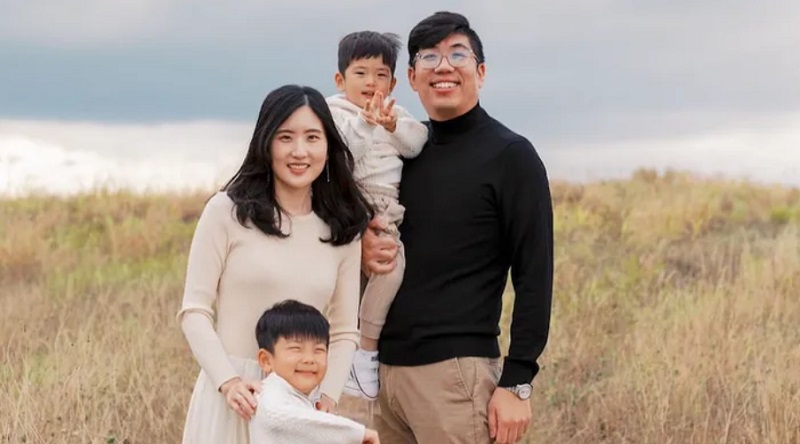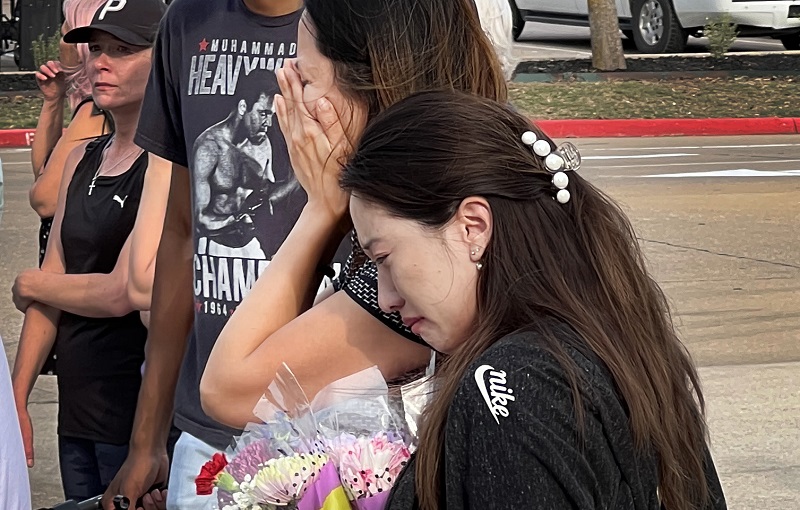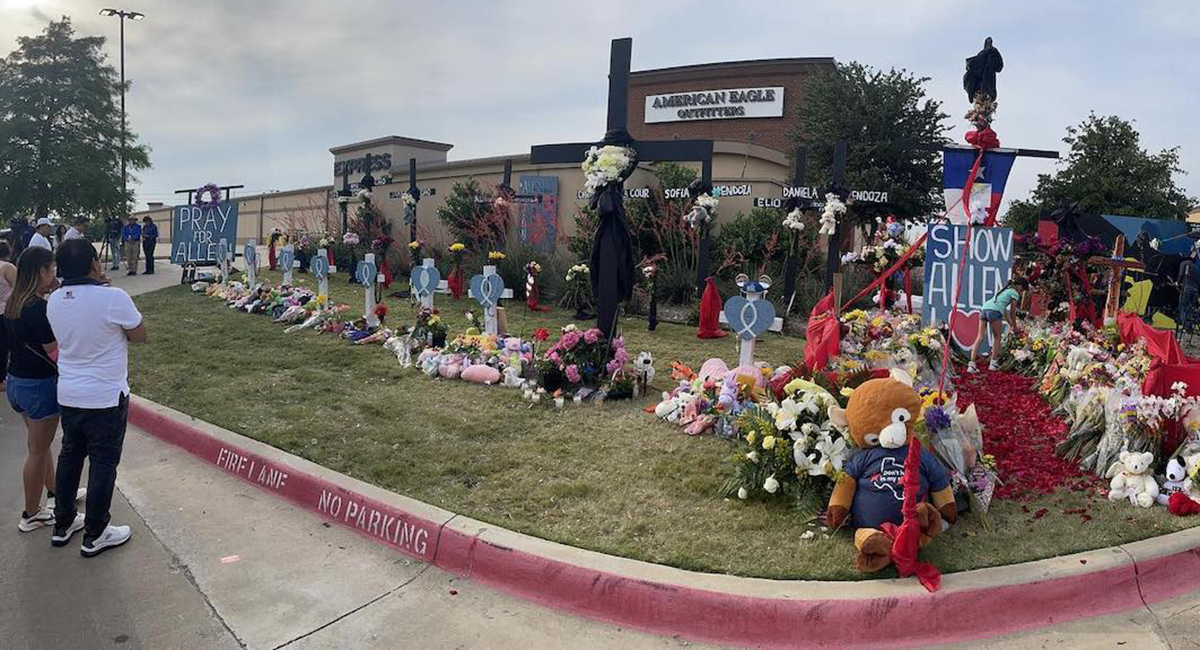Above: A memorial outside the mall in Allen, Texas where a gunman opened fire, killing 8 people. Image via Facebook.
Nearly two weeks after a mass shooting that claimed eight lives at an outlet mall outside Dallas, headlines in the Korean press highlight the pain and fear many in the community are experiencing in the wake of the deadly tragedy.
Questions are also being raised about officials’ seeming unwillingness to label the attack as a hate crime.
“Since this incident, people in the community have been living in fear. Children are experiencing nightmares, and parents feel helpless,” Chanda Parbhoo, who runs SAAVETX Education Fund, which works to promote greater voter engagement among API communities in Texas, told the Korea Daily’s Nicole Chang.
A statement released by the Korean Society of Dallas pointed to the “great sadness” that the shooting had caused, adding, “We realize that the Korean community is no longer safe and that there is a reason for the Korean community to be more vigilant.”
Victims of the May 6 shooting in Allen, Texas, a suburb an hour’s north of Dallas, included three members of a Korean American family – Cho Kyu Song, 37, and his wife, Kang Shin Young, 35, as well as one of their children. The other victims were 27-year-old exchange student Aishwarya Thatikonda of India, sisters Daniela and Sofia Mendoza (both elementary school students), Elio Cumana-Rivas and Christian LaCour.

The alleged attacker, Mauricio Garcia, was killed by police during the incident. A Dallas resident of Mexican descent, Garcia was found to be wearing a patch with the letters RWDS, for Right Wing Death Squad, which is linked to a number of white supremacist and extremist groups including the Proud Boys. Garcia’s social media posts were filled with racist and white supremacist screeds.
Officials have so far refused to label the attack as a hate crime. According to the Korea Daily, Hank Sibley, regional director for Texas Department of Public Safety, told reporters Garcia likely “targeted the location, rather than a specific group of people.”
That explanation falls flat for many in the community in and around Allen.
“Allen and its neighboring cities of Plano and Frisco are home to one of the largest Asian populations” in the country, Stephanie Drenka, co-founder of the Dallas Asian American Historical Society, told the paper. “The targeted location does not rule out the possibility of a hate crime.”
Lily Trieu, interim executive director of Asian Texans for Justice, was more blunt in her assessment. “The comments made by authorities demonstrate a fundamental lack of understanding of how systemic racism operates.”
Texas passed the James Byrd Jr. Hate Crimes Act in 2001 after the high-profile murder of James Byrd, an African American, by white supremacists. But data show only a tiny fraction of potential hate crimes cases brought before authorities are charged as such, either because of a lack of evidence to prove bias, a lack of officer training, or a reluctance on the part of prosecutors to attach hate crime enhancements.
Drenka and Trieu joined with other Asian American civic groups for a joint press conference on May 15 calling on authorities to investigate the racial motivations behind the attack, the latest in series of shootings to hit the Korean community in Texas.

On May 11 of 2022, a gunman opened fire at a hair salon in Dallas’ Koreatown neighborhood, injuring three. The shooter in that case was eventually charged with a hate crime. Just last month a 62-year-old Korean male shot and killed a Korean bar owner in Dallas’ Koreatown.
Investigators in that case appeared to brush off concerns, telling residents such shootings are a daily occurrence in Dallas. “It was a big deal to us, but they talked about it as if it wasn’t. I don’t think Koreatown is safe anymore,” Soo-jung Jang, who owns the Dallas hair salon where the 2022 shooting took place, told the Korea Daily.
The May 6 shooting, meanwhile, is also stirring memories of another shooting at two day spas in Atlanta, killing 8 people, including 6 women, all of them Asian.
In a message of condolence and solidarity with the Korean community in Texas, The Korean American Association of Atlanta released a statement stressing the need for stricter gun regulation and “thorough background checks for gun purchasers.”
Texas Governor Greg Abbot has so far refused to consider any such moves, focusing instead on the alleged mental health of the attacker while dismissing calls for tightening Texas’ notoriously lax gun laws.
That has community members worried.
“My non-Korean co-workers already know Korean Americans are hesitant when it comes to gun ownership,” one resident of Frisco told the Korea Daily, a fact he says makes them a target.
An editorial in the Korea Times echoed that same sentiment.
“We are getting used to the fear of not knowing who will be held at gunpoint. What is more burdensome than the dulling fear is the frustration of not being able to pin our hopes on gun control.”
“May the late Cho Kyu-seong’s family and all the souls sacrificed at Allen Mall rest in peace,” it added.
Additional reporting by Jongwon Lee.
This resource is supported in whole or in part by funding provided by the State of California, administered by the California State Library in partnership with the California Department of Social Services and the California Commission on Asian and Pacific Islander American Affairs as part of the Stop the Hate program. To report a hate incident or hate crime and get support, go to CA vs Hate.





